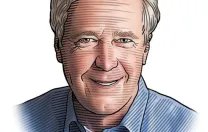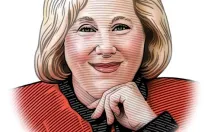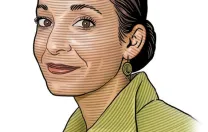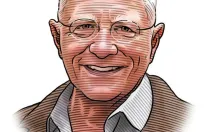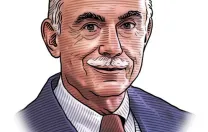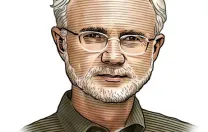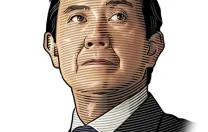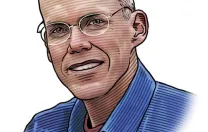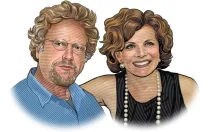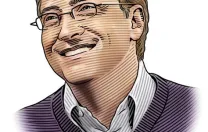Imagining the future—however risky it is to make predictions—can be a comforting activity, even a productive one. And although psychologist Daniel Gilbert's 2006 book Stumbling on Happiness makes a strong case that humans aren't very good at forecasting what will make them happy even a few days hence (much less in 25 years!), it seems that human nature also compels us to build some castles in the air—and maybe even try to move in.
Building that castle, like all human achievements, starts with an idea. Every creation springs from a vision of something that does not exist, but might. Such first stirrings, neither plans nor blueprints, are closer to desires. And desire, as the prime motive force, is essential. Holding in mind a detailed image of a wished-for outcome can be a powerful step in creating that very result.
We asked a baker's dozen plus one of diverse Harvardians to share their images of what the University ought to be a mere quarter-century from now. Not to predict what it will become, just to lay out what each contributor would like to see in a four-centuries-old academy. Taken together, the varied visions don't so much compete with as complement each other: these small discourses resemble less a chessboard than a bouquet to alma mater. With gratitude to all participants, we invite you to draw near, look, and inhale.
A Yardstick of Serviceby Bill Gates The Microsoft founder recommends service as a criterion for values. |
|
e-Harvard.400by Eli M. Noam and Nadine Strossen Harvard needs to extend its reach online in the future, without lowering
standards. |
|
Farm the Yardby Bill McKibben Harvard should teach its students earthy, practical skills as well as
mediated ones. |
|
Harvard in a Multipolar Worldby Ma Ming-Jeou Though China may surpass America as an economic power, Harvard can retain
its global leadership in higher education by maintaining its core strengths. |
|
Beyond "Highbrow Amateurism"by John Adams Harvard could become a place where all talents find a welcome, and art
students of all stripes can study with masters. |
|
Tutors: Good, and Cheapby John Newmeyer The House tutorial system effectively educates undergraduates on a small
intimate scale and should be strengthened. |
|
Nontraditional Students Surgeby Michael Shinagel In the future Harvard will serve nontraditional students, both on and
off-campus, in much greater numbers than traditional ones. |
|
"Wonder in the Bewilderness"by Amory B. Lovins Academic freedom for students should mean the freedom to study what they
want, without regard to categories or rigid boundaries and rules. |
|
Tackle the Big Issuesby Franklin W. Hobbs Harvard needs to structure its research and teaching around several of the
world's leading social and economic problems. |
|
The Venture-Capital Universityby Caroline Hoxby Harvard invests in its people in much the way that a venture capitalist
invests in a new business venture. |
|
The Arts: More Than Diversionby Mia Riverton The arts deserve central consideration in Harvard's mission, not just
treatment as an embellishment. |
|
"Even Higher" Educationby Rosabeth Moss Kanter Harvard's future will include an emphasis on learning by many kinds of
students, who attend throughout the life cycle. |
|
An Engine of Class Mobilityby James Fallows A major strength of Harvard is its ability to enable students to improve
their socioeconomic standing, and that should be preserved. |
